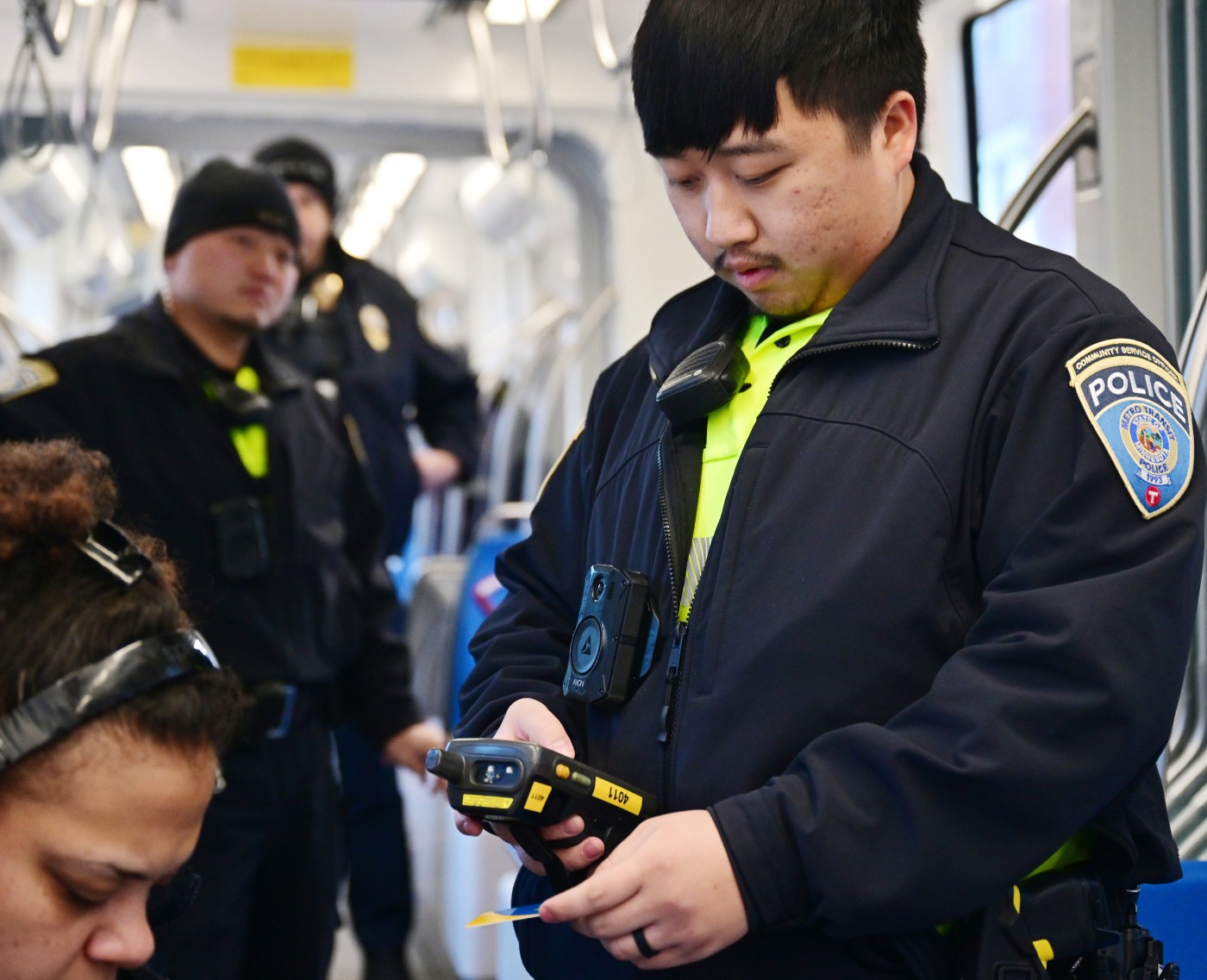
Metro Transit rolls out civilian light rail improvement agents
In addition to a recently-expanded Metro Transit Police presence on light rail, the public transit authority is installing 24 civilian agents to inspect fares and remind passengers about rules against smoking, loud music and other inappropriate behavior that have dogged efforts to lure some passengers back to the trains.
Beginning Friday, the “Transit Rider Improvement Program,” or TRIP, agents will ride the Green and Blue lines 16 hours per day issuing administrative citations for non-payment of fares. They’ll educate passengers about the Passenger Code of Conduct with “Your Role as a Rider” reminders, and share information about routes and schedules.
TRIP agents also will be equipped to assist passengers in need to social service programs and administer first aid and Narcan, which can treat narcotic overdoses in an emergency.
The 24 agents, who are provided through a contract with private security company Allied Universal, are trained in de-escalation techniques. They will ride trains alongside community service officers who have been inspecting fares and issuing administrative citations since Dec.4.
Two dozen TRIP agents will be assigned to the light rail lines each day from 6 a.m. to 10 p.m., though Metro Transit plans to expand the teams. This spring, they’ll transition to Bus Rapid Transit lines to perform similar duties.
The agents, who carry radios connected to emergency dispatchers, will be identifiable by their royal blue uniforms.
Metro Transit police officers and community service officers, supplemental security officers and representatives from 10 community-based organizations have also become increasingly visible on vehicles and at stations.
Until a change in state law last year, only police officers could issue citations for fare non-payment, and the criminal misdemeanor citations rarely resulted in paid fines. Since December, community service officers have completed more than 14,000 fare inspections and issued more than 950 non-criminal administrative citations.
Fines for fare non-payment start at $35 and can be waived or reduced in a variety of ways.
Transit officials acknowledge that behavior remains a concern in some locations. Still, Metro Transit ridership grew 16% from 2022 to 2023 while reported crime on transit — which grew in step with increased enforcement and data collection in 2022 — dropped 25% from early to late 2023.
Related Articles
Letters: Here’s one reason for front license plates
The life and times of Roy Wilkins, a St. Paul native who was a civil rights champion
Protesters disrupt St. Paul City Council meeting, demanding cease-fire in Gaza
3M spinoff Solventum to be listed on NYSE as SOLV
Teen shot in St. Paul dies, 17-year-old shooter charged


